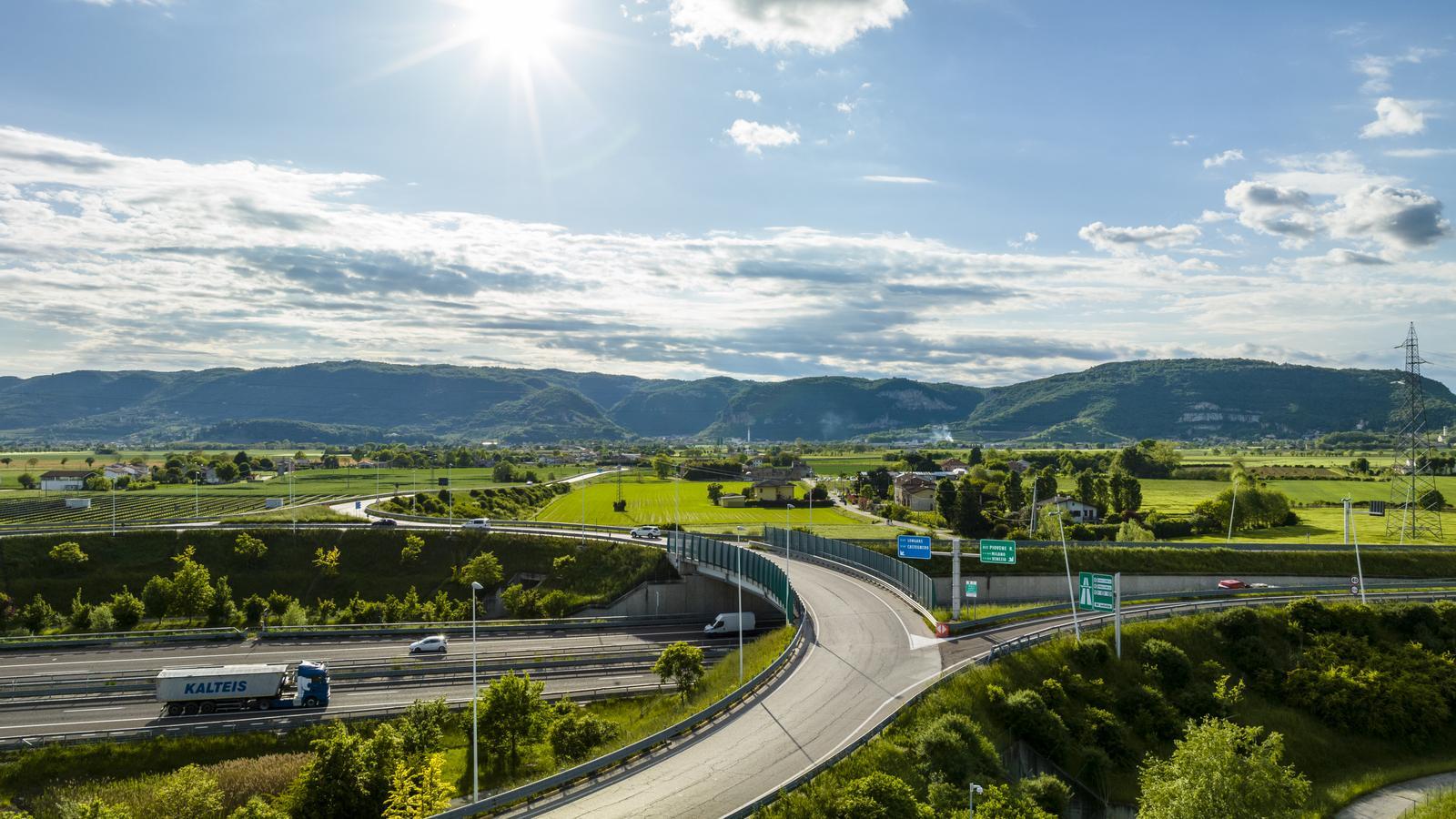Abertis advances toward a sustainable future: it reduces its emissions by 25% in five years.
The internationally renowned infrastructure and mobility management company is taking a firm step in its sustainability strategy through decarbonization, the use of green energy, and the promotion of the circular economy.

In a global context marked by the climate emergency and the urgent need to reduce greenhouse gas emissions, Abertis has managed to reduce its direct emissions by 25% (Scope 1, which includes fuel combustion and the transport of its own fleet) and indirect emissions (Scope 2, which refers to greenhouse gases). This objective has been achieved in just five years and now, the company has set itself a new, even more ambitious challenge: to reduce emissions by 50% by 2030. This is how the group specialized in infrastructure and mobility management successfully completes its first ESG Plan (in English, environmental, social and governance) 2022-2024.
With this objective, Abertis consolidates its commitment to cleaner and more efficient mobility, in line with the Sustainable Development Goals (SDGs). The 2022-2024 ESG Plan, which acts as the initial roadmap for its 2022-2030 Sustainability Strategy, has been key to consolidating the integration of environmental, social, and governance criteria.
Compared to 2023, the group has recorded an 8.9% reduction in greenhouse gas (GHG) emissions and is moving towards a 22% reduction in Scope 3 emissions—other indirect emissions related to suppliers and services—over the next five years. This climate commitment, which is in line with decarbonization goals, has been externally validated by the Science Based Targets initiative (SBTi), the international benchmark organization, which certifies the alignment of Abertis's targets with global scientific standards in the fight against climate change.
Green energy and energy efficiency as strategic pillars
One of the pillars of the environmental policy of this leading company in high-capacity, high-quality road management and smart mobility solutions is the consumption of energy from renewable sources. In 2024, 72.8% of Abertis's direct energy came from clean energy, exceeding the 67.6% of the previous year. In countries such as Spain, France, Italy, Brazil, and Chile, this figure has already reached 100%.
Georgina Flamme, the group's Director of Institutional Relations, Communications, and Sustainability, emphasizes that at Abertis they are "fully committed to more fluid and sustainable mobility: we are putting all our efforts into reducing emissions, decarbonizing our infrastructure, and ensuring the fluidity of land transport." To this end, the director affirms that "digitalization, innovation, and the use of renewable energy have become key tools."
In parallel, 776 electric charging points have been installed and 62 solar plants have been launched in eight business units, achieving all the environmental, social, and governance objectives set, thus demonstrating the commitment to a more efficient and prepared infrastructure. "Advancing the use of green energy is one of our main milestones, and we are working to ensure that in the coming years, 100% of our electricity consumption comes from clean energy," Flamme emphasizes.
Circular economy and more sustainable infrastructure
Another key focus of the ESG Plan has been responsible waste management. Currently, Abertis recycles and recovers around 86% of the waste it generates globally—a figure well above the initial target of 50%—and aims to maintain this figure above 80% until at least 2027. This improvement has been achieved thanks to more efficient sorting and recycling processes derived from waste management.
In the infrastructure sector, the company updated its General Management Policy in 2024 to promote the sustainable development of its activities and the maintenance of its infrastructure based on innovation and the circular economy. This year, 11% of the materials used in pavements were of recycled origin. France leads the way in this regard, with 43% use of recycled asphalt (RAP), followed by Italy (around 30%). Chile, meanwhile, stands at around 9%, and in Brazil, trials are underway to increase its use in future repaving projects.
New ESG Plan 2025-2027: continuity and renewed ambition
With 2030 as its horizon, Abertis is now embarking on a new phase with the 2025-2027 ESG Plan. This new phase aims to build on the achievements made in the first phase, but with renewed ambition: it incorporates more demanding objectives and new cross-cutting projects aimed at deepening energy efficiency, sustainable innovation, and digitalization.
With this roadmap, the group reaffirms its commitment to leading the transformation of the sector towards more sustainable and efficient, decarbonized, and committed mobility.
